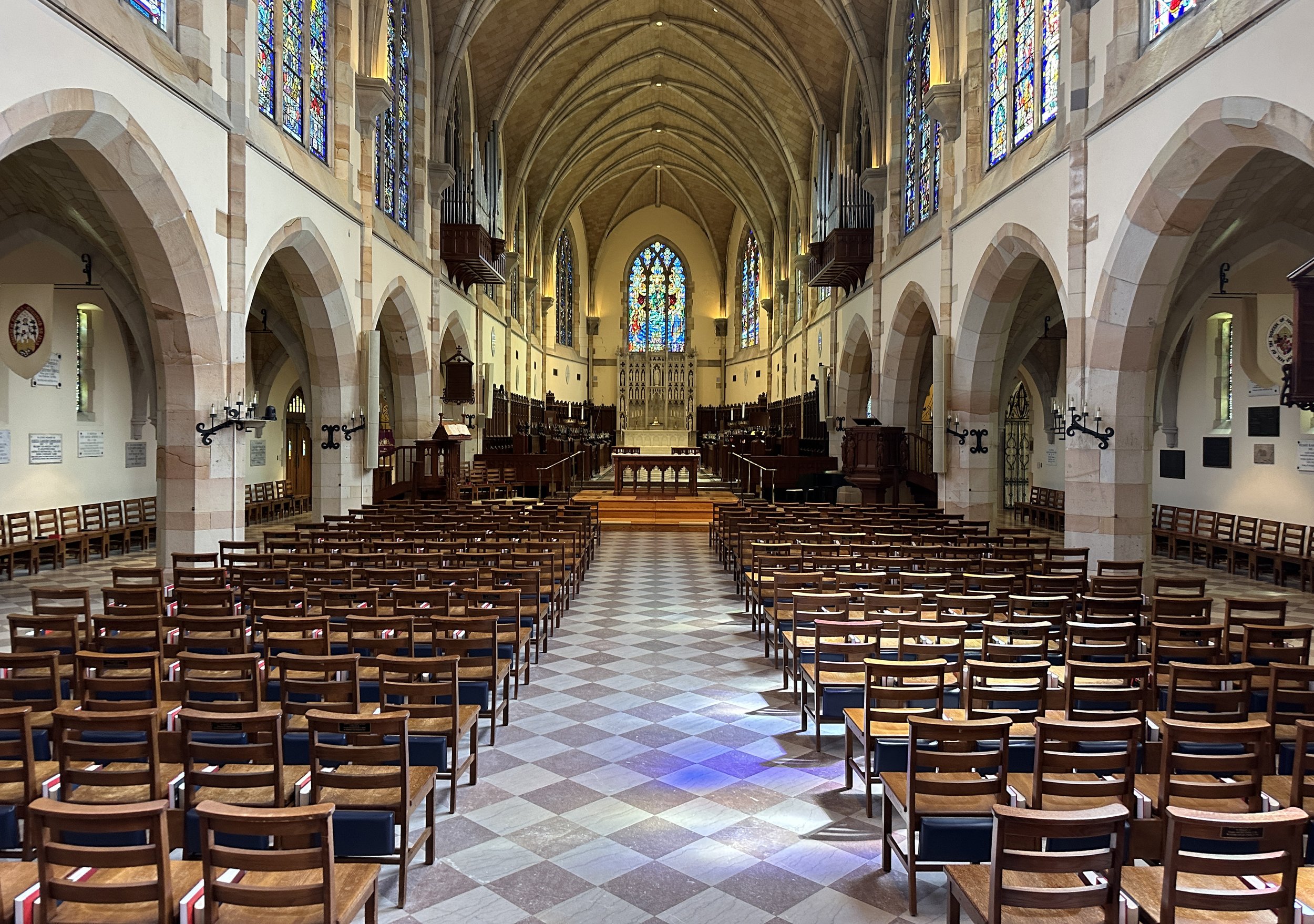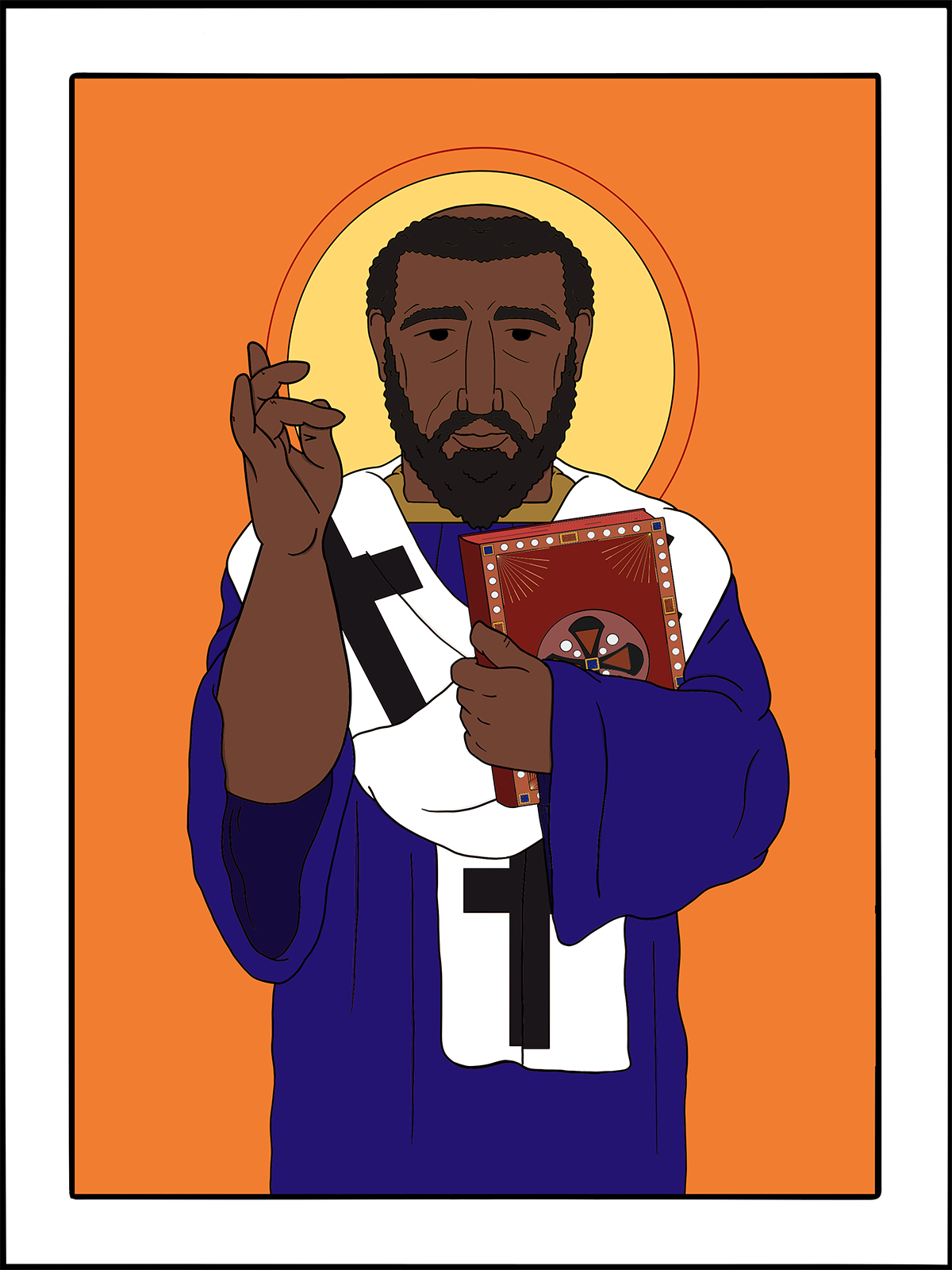
September 13
Cyprian of Carthage
Bishop and Martyr, 258
art by Rev. Kirsten Kohr of Geneva, Ohio Almighty God, who gave to your servant Cyprian boldness to confess the Name of our Savior Jesus Christ before the rulers of this world and courage to die for this faith: Grant that we may always be ready to give a reason for the hope that is in us and to suffer gladly for the sake of our Lord Jesus Christ; who lives and reigns with you and the Holy Spirit, one God, for ever and ever. Amen.
Cyprian was a rich, aristocratic, and cultivated rhetorician in North Africa. He was converted to Christianity about 246, and by 248 was chosen Bishop of Carthage. A year later, in the persecution under the Emperor Decius, Cyprian went into hiding. For this, he was severely criticized. Nonetheless, he kept in touch with his church by letter and directed it with wisdom and compassion. In the controversy over what to do with those who had lapsed during the persecution, Cyprian held that they could be reconciled to the Church after suitable periods of penance, the gravity of the lapse determining the length of the penance. His moderate position was the one that generally prevailed in the church, over that of the rigorist Novatian, who led a group into schism at Rome and Antioch over this question. In another persecution, under the Emperor Valerian, Cyprian was placed under house arrest in Carthage, and, on September 14, 258, he was beheaded.
Many of Cyprian’s writings have been preserved. His Letter No. 63 contains one of the earliest affirmations that the priest, in offering the Eucharist (“the sacrifice”), acts in the place of Christ, imitating his actions.
In his treatise On the Lord’s Prayer, he wrote: “We say ‘Hallowed be thy Name,’ not that we want God to be made holy by our prayers, but because we seek from the Lord that his Name may be made holy in us … so that we who have been made holy in Baptism may persevere in what we have begun to be.”
Although there is some question whether his book On the Unity of the Catholic Church affirms papal primacy, there is no question about the clarity of his statements on the unity of the college of bishops and the sin of schism. “The episcopate is a single whole,” he wrote, “in which each bishop’s share gives him a right to, and a responsibility for, the whole. So is the church a single whole, though she spreads far and wide into a multitude of churches ... If you leave the church of Christ you will not come to Christ’s rewards; you will be an alien, an outcast, an enemy. You cannot have God for your Father unless you have the church for your Mother.”
Excerpted directly from “Lesser Feasts and Fasts 2022,” p. 406-407.

